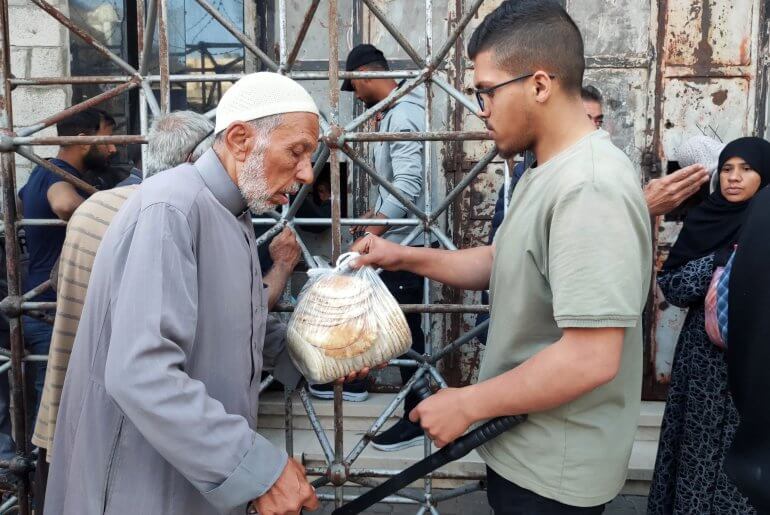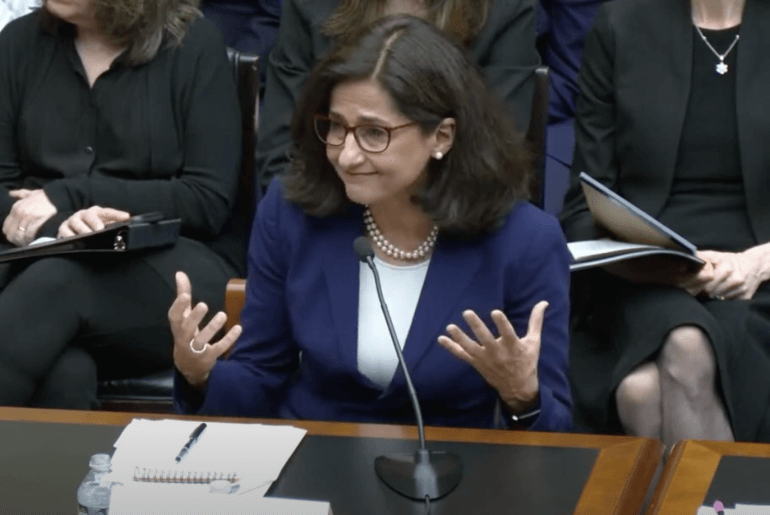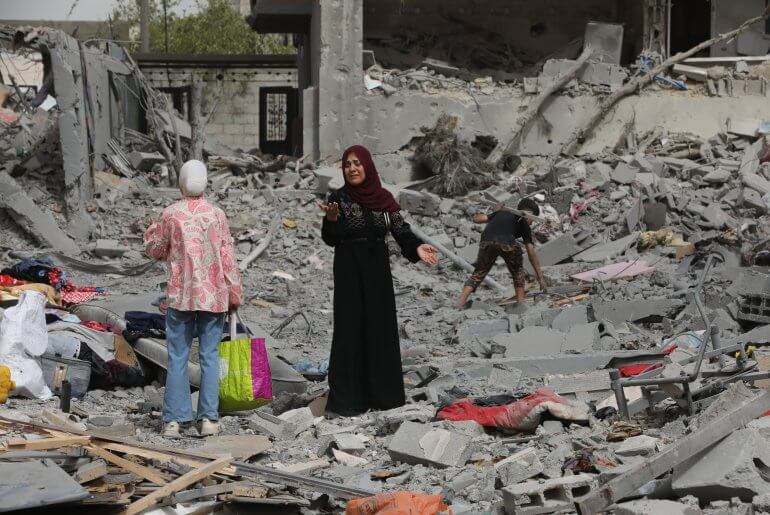In early May, a group of Israeli settlers arrived with caravans and set up an illegal outpost on the top of Jabal Sabih on the outskirts of Beita, in the northern occupied West Bank.
Since then, every single day for more than two months, protests in the village have been nonstop, and the Israeli response has been severe.
Since protests began on Jabal Sabih, Israeli forces have killed five Palestinians: four residents of Beita, and one young man from the nearby village of Yatma.
The latest victims of the Beita protests were two teenagers: 16-year-old Mohammed Hamayel, and 17-year-old Ahmed Bani Shamsa. The two were reportedly school friends, and were some of the hundreds of Beita’s youth who participated in the protests regularly.
Hundreds more Palestinians from Beita and the surrounding villages have been injured by Israeli forces during the protests, a significant amount with live ammunition. Some locals estimate that there have been over 1,000 injuries with live ammunition since protests began.
The Eviatar outpost was erected by a group of Israeli settlers, who under the protection of the Israeli military, have successfully occupied the mountaintop, and dozens of acres of land around it.
Under Israeli law, outposts like Eviatar are considered to be illegal, as they are built without prior approval from authorities, unlike formal settlements which are built and subsidized by the government. Both outposts and settlements are illegal under international law.
Despite this, the settlers in Eviatar have continued to grow the outpost, erecting an estimated 45 caravans and prefabricated homes in just a few weeks. The Israeli government has also provided the settlers in the outpost with paved roads, water lines, and electricity.
Many of the settlers in Eviatar have come from surrounding settlements and outposts in the area, including the Yitzhar settlement, home to some of the most notoriously violent settlers in the entire West Bank.
Just a few kilometers away from Beita, is the town of Duma, where in 2015, a group of Israeli Israeli settlers set fire to a Palestinian home, killing three members of the Dawabsheh family, including an 18-month old baby.
The Palestinians in Beita fear that if the outpost remains on their land, the settlers will become more violent, and their families could suffer a fate similar to that of the Dawabshehs.
The most recent protests in Beita are the latest in a long history of anti-settlement resistance in the town. Since 1988, the people here have successfully fought off a number of attempts by Israeli settlers to take over their land.
Just last year, Israeli settlers tried to occupy another mountain in the town called Jabal al-Urmah, sparking massive protests in the area. On March 11th, 2020 hundreds of Beita’s residents, including women, children, and the elderly, held a peaceful sit-in on the mountaintop.
They were attacked by Israeli forces, who fired tear gas, rubber bullets, and live ammunition at the crowds. Abdulghani Dweikat was there that day with his 22-year-old son Islam.
“The spot where Islam was killed is right here,” Dweikat told Mondoweiss from the top of Jabal al-Urmah.
“An elderly person, around 70 years old, was shot in his chest with a rubber bullet and tear gas. So I went to grab some tissues and bring them to him. When I left the tent I saw people calling for the ambulance,” he recounted.
“And I saw Islam, he was here,” Dweikat said, pointing to a spot on the ground, now overgrown with shruberry.
“I couldn’t do anything. I didn’t know what happened. I started to shout at the soldiers, ‘you killed him, you killed him’,” he said.
“I fell down and shouted again. And then they shot me twice in my side,” he said, pointing to the left side of his abdomen. “I still have the scars.”
Dweikat joins a long list of parents in Beita whose children were killed by Israeli forces.
Since 1967, 77 residents of the town have been killed by Israel. Many of them during protests like the ones on Jabal al-Urmah and Jabal Sabih.
As the call to prayer rings through the town at sunset, the streets of Beita are practically empty.
Most of the town’s residents can be found making their way to Jabal Sabih, for what they call “nights of confusion.”
Scattered across the mountain, the residents of Beita split into groups, or teams, each one designated with a different task aimed at irritating and disturbing the settlers on the mountaintop.
One team points lasers towards the outpost and Israeli troops stationed on Jabal Sabih, while other groups are tasked with blowing horns and making loud noises, and the rest, primarily young men, light torches and march down through the valley and set tires on fire to set smoke up towards the outpost.
Other small groups of young men, who get as close as they can to the outpost, where they face off against Israeli soldiers, armed only with rocks and homemade slingshots.
“God willing, with the support of the young men and their determination and willpower, this settlement will be removed. And the occupation will end as well. And our country of Palestine will be free, and independent, and her capital will be Jerusalem,” one protester told Mondoweiss.
Hours into the night confusion activities, Israeli forces cracked down on protesters, using drones and military jeeps to fire tear gas, rubber bullets and live ammunition.
Despite the violent response of Israeli forces to the protests many families have continued to come to the mountain every single night for night confusion activities.
“We don’t want our kids to die. No one wants his kids to die. I want my kids to grow up. And to have a family, and to study in university,” Mohammad Hamayel said, as he marched down the mountain, his arm draped over his teenage son, Aws.
“My older son is thinking next year to go study in Turkey and study medicine. The ones who are killing their dreams are not us. The ones who kill their dreams are not us, it’s the occupation,” he said.
In late June, after weeks of protests, the Israeli government, led by its new prime Minister Naftali Bennett, reached an agreement with the settlers of Eviatar.
The agreement stated that the settler families who were present at the outpost would leave the houses they built, but the structures themselves would stay, and be converted into a Yeshiva school.
None of Beita’s residents, nor the Palestinians who own land on Jabal Sabih, were consulted about the agreement.
“Nothing will appease us until this settlement is returned to how it was, as olive groves,” a school teacher from Beita told Mondoweiss. “That’s the only thing that will make us happy.”
“We are feeling enraged. We are not happy about any of the decisions they took yesterday and the day before,” she said. “We hope that, with God’s help, the entire settlement will be gone.
“And we say that if they leave the caravans standing, our sons will go and burn them down.”
The people of Beita insist that whether it is in the form of a residential settlement, or a school, the Eviatar outpost is still illegal and must be removed from their land.
Until that happens, they say they’ll keep protesting, no matter the cost.



What Hajo Meyer says in his book “An Ethical Tradition Betrayed: The End of Judaism” seems appropriate – page 37 (Meyer survived 10 months in Auschwitz):
“For Jews, the most important lesson to be learned from the Holocaust is that we should never, ever become like our persecutors. It goes without saying that we must never build gas chambers, but more than that, I believe that we as a people, with our rich history and valuable tradition of ethics – a tradition of ethics that has profoundly influenced all legal systems in the West – should never even come close to behaving as our persecutors have toward us. If we do not internalize this lesson we will be in danger of betraying ourselves and endangering our very existence as a people with a common and valuable socio-cultural heritage The meaning of 2,000 years of persecution in the Diaspora simply cannot be that now that Jews have their own state they may persecute others.”
These brave people are one of the main reasons I donate to MW and of course because of the brave journalists/reporters who inform us as to what the evil Apartheid entity and it,s vile adherents are doing.
Short Video:
What’s happening in the Palestinian town of Beita? – YouTube
June 17/21
“Palestinians in the town of #Beita in the occupied West Bank are fighting to protect the area from settlers taking over their land, and it isn’t the first time.”
For the record:
Article 49 of the 1949 Fourth Geneva Convention on the treatment of Occupied populations in wartime says, ‘The Occupying Power shall not deport or transfer parts of its own civilian population into the territory it occupies.’
This provision was intended to prevent a repeat of what Germany’s Third Reich did in Poland, which it occupied in 1939, and into which it sent ethnic Germans as squatters on Polish land, while at the same time exiling Poles– all of this with the intent gradually to Germanize Poland and make it just eastern Germany.
Beyond Discrimination: Apartheid is a Colonial Project and Zionism is a form of Racism – EJIL: Talk! (ejiltalk.org)
EJIL:Talk!Blog of the European Journal of International Law July 5/21 by Noura Erakat.
EXCERPTS:
“In the twenty-eight years of the Oslo peace process, Israel has torpedoed the prospect of a Palestinian state, which offered it an internationally sanctioned pathway to preserving its Zionist settler sovereignty. In doing so, Israel is manifesting to the world what Palestinians have long known: it wants the land without the people and seeks to remain the sole source of authority from the Jordan River to the Mediterranean Sea. The Human Rights Watch report concluding that Israel oversees an apartheid regime is more of an acknowledgment of the reality than a revelation of its existence. The report continues a rich line of existing resources including by Badil, Al Haq, Adalah, the Human Sciences Research Council of South Africa, the Palestinian BDS National Committee, the Durban Review Conference, the Russell Tribunal on Palestine, UN CERD, UN ESCWA, Yesh Din, B’tselem, as well as decades of Palestinian intellectual labor and advocacy. The title of HRW’s report, A Threshold Crossed, reflects that Israel has removed any plausible deniability of its intentions to remain the sole sovereign and to, at best, offer Palestinians the opportunity to govern themselves in autonomous zones – equivalent to North American reservations and South African black homelands, the latter condemned as an instrument to maintain “white minority domination and to dispossess the African people of South Africa of their inalienable rights” in 1976.”
“In this essay, I will explore the dominant Palestinian tradition first by highlighting Palestinian intellectual thought on Zionism as a form of racism and racial discrimination. I will also review the legal analysis underpinning Israel’s apartheid regime, which reflects its Zionist ideology rather than the outcome of a failed political project to establish a Palestinian state. The essay will then show how Zionism is better understood as a political and intellectual analog of apartheid in order to emphasize that Israel did not become a discriminatory regime but is defined by such discrimination. I will conclude with thoughts on the international responsibility to end the apartheid of our time.”